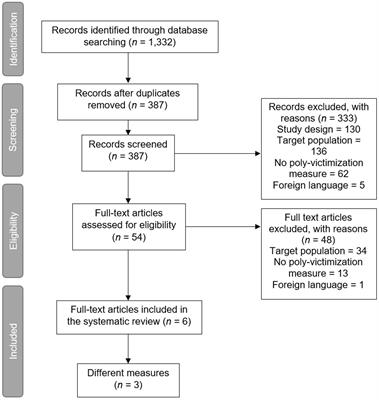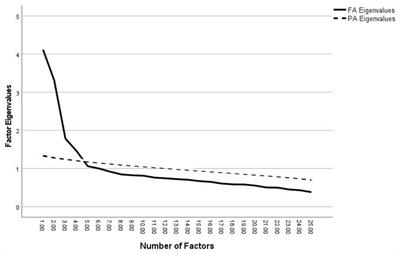SYSTEMATIC REVIEW
Published on 16 Sep 2024
Understanding “Childhood Poly-Victimization” to help uncover abuse during child investigative interviewing: a systematic review

doi 10.3389/fpsyg.2024.1395940
- 1,477 views
1,056
Total downloads
7,341
Total views and downloads
Submit your idea
You will be redirected to our submission process.
SYSTEMATIC REVIEW
Published on 16 Sep 2024

ORIGINAL RESEARCH
Published on 06 Dec 2023

Manuscripts can be submitted to this Research Topic via the main journal or any other participating journal.
Submit your idea
You will be redirected to our submission process.